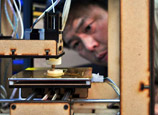
Huawei is an employee-owned multinational company headquartered in China and a fast-growing telecommunications equipment and solutions provider that has grown to be one of the leaders of the industry in less than 30 years. U.S. authorities have blocked Huawei from entering the U.S. market, citing alleged "potential ( though never confirmed) threat to national security" though Huawei says it's open to investigations into any such allegations.
Susai and Todd's two other colleagues from the research group Todd used to work with said that the GaN group was still doing the groundwork to create GaN on silicon, a project still in its infancy at the institute, and that no devices had been developed.
Susai said that the GaN group had not even manufactured a wafer and that the institute does not conduct direct military-related research or defense-related research.
They said the alleged sensitive research was not possible as their team was in its infancy when Todd was employed.
They also said that Huawei was looking for research on a material called Gallium nitride-on-silicon carbide, whereas the IME group's work was on Gallium nitride-on-silicon.
The operating speed of the devices that IME was focusing on was too slow for military applications, they added.
Susai said when he asked Todd about the reasons for resigning from the institute last year, Todd said that "he had made a mistake in joining the GaN group because his expertise was in silicon and not GaN."
He also said that Todd had no background in GaN when he joined the group and found it difficult to be in the GaN group as he lacked knowledge in GaN.


















 Deaths prompt concerns over elevator safety
Deaths prompt concerns over elevator safety


![]()
